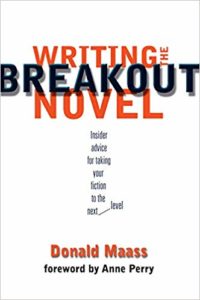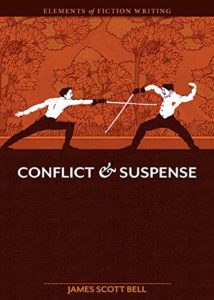Continuing the posts from a month or so back, when the world was a different place. But I still want to write, and share craft, so here you go.
Finally, a great story – and a great character – need stakes.
Stakes are raised through adding tension at both a macro and a micro level.
Take the Macro…
At a macro level, your story needs to be about something compelling. Note that compelling does not necessarily mean over-the-top, in-your-face action. It means that the character is emotionally invested in the outcome. It means that tension is exacerbated each time the character misses the mark, by ignoring obvious errors, by not understanding what’s happening, or by moving in the wrong direction and/or making poor choices.
As an example, consider any good romantic novel. The premise is always that the lovers will go through a series of push and pull moments. When boy loses girl, it’s usually because he has done or said something stupid, and he has to win her back. This is not action/adventure, but it must be “high stakes” for the couple in question. After all, it‘s about their future, their happiness – and if you are Jane Austin, it’s also about the happiness of their families and possibly even their friends, and maybe even the good of society at large. Those stakes are heightened when the writer heightens the romantic tension by withholding a good outcome until the last possible moment.
As Donald Maass says in Writing The Breakout Novel, high public stakes (“we will all suffer”) go hand in hand with high personal stakes (“I will suffer”), and it is the writer’s job to tap into the emotional heart of what is happening and present it to the reader.
And the Micro…
At a micro level, stakes are raised through diction and syntax. Short, punchy sentence structure produces a reaction in the reader’s brain, and the reader feels tension, anxiety, and dread. Word choice can also affect the reader’s response, as hard consonants create the feeling of abrupt or brutish action. And don’t forget that the right verb can create a punch in the gut sensation (just consider the verb “punch” versus the verb “hit”).
A careful writer will, at some point, spend time going through a novel slowly for just those moments, to heighten tension by changing words or sentences. This writerly skill is sometimes intuitive, but it can also be learned, and if you practice it, you’ll find it comes more naturally with time.
 For more on this, see James Scott Bell’s Conflict and Suspense.
For more on this, see James Scott Bell’s Conflict and Suspense.
Writer Brain, Reader Brain
What this comes down to, as all the posts I’ve written in this series have made clear, is the emotional connection that must be made between reader and writer. The sensation of being lost in a book is brought about when the reader is no longer aware of the machinations of the writer but is, at a lizard-brain level, aware that “something big is going on” in the text.
Heightening the stakes in your work means paying attention, during later drafting/revision stages, to how and where you’ve created “high-stakes” moments, and to making things worse, if necessary. But it also means balancing those moments of high drama with moments when the reader (and the characters) can take a breath before moving to the next level of tension. Tension plays best in opposition to its release.
But best not to release for too long. Modern readers expect that moments of ease will be followed pretty rapidly by an increasingly higher-stakes game. And never let the reader forget the risk your character is taking by relaxing.
So, to repeat, a character’s emotional responses are always at the core of creating a great character, and thus a great story.
As always, I welcome your thoughts and questions.
And, as promised, here are the next two chapters of my YA sci-fi, ARK.
